How to Have a Healthy Uterus for Pregnancy?
Fertility Treatment
Pregnancy is a significant period of a woman's life, and it includes a series of pre-pregnancy care measures, one of which is strengthening the uterus for pregnancy and fetal growth. Strengthening the uterus can reduce risks such as miscarriage or premature birth. This article discusses the importance of improving the uterus and ovary's health for pregnancy and how to do it.
Pregnancy, as a significant period of a woman's life, involves a series of pre-pregnancy care measures, one of which is ensuring that you have a healthy uterus for pregnancy and fetal growth. Proper preparation for implantation is crucial to reduce risks such as miscarriage or premature birth. Strengthening the uterus for pregnancy can significantly contribute to a smoother journey through conception and beyond. Discovering how to prepare the uterus for implantation is a key aspect of comprehensive pre-pregnancy care, emphasizing the significance of a healthy reproductive environment for the successful initiation of pregnancy.
In this article, we will explore various tips and strategies for helping women prepare and maintain their uteruses for pregnancy. Join us as we delve into the world of uterine health and discover how to make your uterus strong for pregnancy.

The Importance of Preparing Uterus to Get Pregnant
The uterus is one of the most important female organs and the place where the fetus forms and develops before birth.
After the embryo forms in the uterus, the fetus is stored and grown there for nine months. The uterus also provides all the necessary nutrients and hormones to the fetus. A defective or weak uterus may prevent the body from keeping the fetus for nine months and can lead to risks such as premature birth or miscarriage.
Therefore, trying to prepare and maintain the uterus for pregnancy and strengthening the ovaries by adopting a healthy and nutritious diet increases the egg's strength and quality and reduces possible pregnancy risks. It is also recommended that women who plan to become pregnant consult a gynecologist and perform the possible necessary treatments.
What Is The Role of the Uterus in Pregnancy?
Fertilization occurs when sperm enter the uterus and meet an egg in the fallopian tube. It happens hours or days after sexual intercourse. The fertilized egg sticks to the uterine wall in the first days after conception, called implantation, and grows inside the uterus.
The uterus is the first home of the fetus, which develops until childbirth. Due to its high flexibility, this female organ grows along with the growth of the fetus and provides the necessary space for the fetus. The uterus sometimes cannot grow the fetus due to polyps, uterine fibroids, and ovarian cysts during pregnancy.
Therefore, it is important that all women who want to get pregnant recognize how to make uterus strong for pregnancy under the supervision of a gynecologist.
What Are the Signs of Uterus Readiness for Pregnancy?
Some signs can show readiness or lack of readiness of the uterus and ovaries for pregnancy. For example, a severe irregular menstrual cycle or absent menstruation may indicate the presence of some possible disorders in the female reproductive system, which requires careful examination and complete treatment before pregnancy.
Women who want to get pregnant can prepare their uterus for pregnancy by examining the existing symptoms to cure possible uterine disorders. They can also strengthen uterus for pregnancy by following a proper diet and maintaining a balanced weight.
What Are the Effective Factors to Improve the Uterus and Ovaries Health?
Regular and painless menstruation is one of the signs of healthy ovarian eggs. However, it alone does not indicate the readiness of the uterus for pregnancy. Various factors can play a role in strengthening the reproductive organs and their health and, as a result, having a successful pregnancy.
Environmental conditions, hormonal changes, regular menstrual cycles, mental health and stress avoidance, a standard diet, and proper blood circulation may be effective factors that can strengthen the uterus and ovaries.
What Are the Ways and Methods to Strengthen the Uterus for Pregnancy?
Some of the most important ways to strengthen uterus for pregnancy are as follows:
- Pre-Pregnancy Checkups
- Stopping Contraceptives
- Determining the Ovulation Time
- Getting Regular Exercise
- Weight Control
- Taking Folic Acid
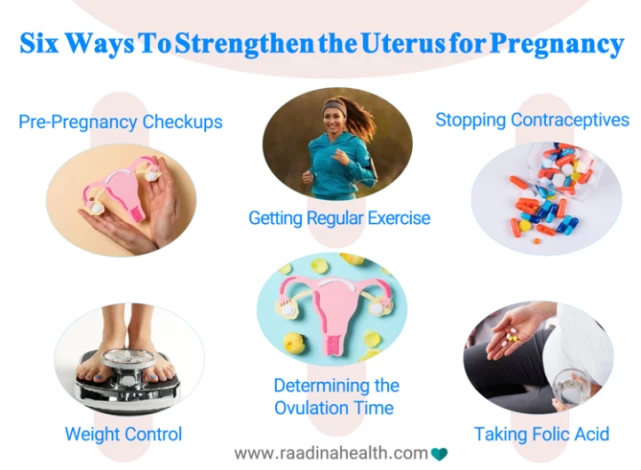
Conducting Regular Pre-Pregnancy Checkups and Examinations
It is necessary to have regular examinations and checkups under the supervision of a specialist to strengthen the reproductive system and have a healthy uterus for pregnancy. The doctor should know the medical history of the couple and their families, medications, and diet. Modify the diet plan and recommend stopping certain supplements and medications if necessary.
Couples should inform the doctor about their exercise program, diet plan, behavioral habits, medical history, and lifestyle and follow their doctor's new pregnancy advice. For couples with high blood pressure, asthma, and diabetes, a specialist doctor may order tests such as a pelvic exam and a Pap smear to identify possible disorders.

Stopping Contraceptives
Contraceptives can prevent fertilization and pregnancy by disrupting the menstrual cycle. Women who want to get pregnant should stop taking birth control pills and wait until their period cycle gets regular.
The time for the next period after stopping contraceptives varies from woman to woman and may take a month or more.
On the other hand, the effect of contraceptives such as progesterone therapy disappears at least 3 to 6 months after stopping their use. Therefore, it is recommended that women who use these contraceptive methods do not have sex until the drug's effect wears off. Because of having sex, it is impossible to determine the exact time of ovulation and conception, and ultrasound should be used to determine the delivery date.
Determining the Ovulation Time
Accurate calculation of ovulation time ensures the health of the pregnancy and allows for the determination of the delivery date. An effective way to find the exact ovulation time is to track the changes in basal body temperature each day and check the condition of the cervical mucus over several consecutive months.
Ovulation test kits can also be useful in detecting ovulation time. Preparing a table for body changes during the menstrual cycle determines the days with the highest chance of pregnancy and leads to more accurate planning for having children.
Getting Regular Exercise for Body Health
Regular exercise is one of the main ways to help maintain body health and especially strengthen the uterus and ovaries for pregnancy. However, women who intend to get pregnant should consult a specialist doctor and a professional trainer about their exercise program.
Getting exercise can also help women who are trying to avoid stress. Aerobic, yoga, and swimming are useful for strengthening the body before pregnancy. Meanwhile, women can follow their yoga exercises during pregnancy under the supervision of their doctor. In addition, it is recommended that women walk for 30 minutes every day to maintain their general health.

Preparing the Uterus with Weight Control
Maintaining an ideal and balanced weight helps the mother have a convenient pregnancy and an easy delivery. Losing weight in obese women or gaining weight in severely thin women helps strengthen the uterus and other body organs before pregnancy.
A higher-than-normal body mass index (BMI) increases the risk of pregnancy-related diseases. Low BMI, on the other hand, can lead to low birth weight babies.
Taking Folic Acid
Taking folic acid has several benefits in pregnancy, including reducing the risk of spinal disorders in the baby. It is usually recommended that women begin a daily intake of 400 mg of folic acid tablets a month before pregnancy. Folic acid needed by the body during pregnancy can be provided through folic acid supplements, legumes, and enriched bread.

What Foods Help Uterus to Get Pregnant?
Following a healthy lifestyle and proper diet effectively strengthens the uterus for pregnancy. It helps to improve hormonal balance, ovulation, menstruation regulation, and uterine and ovary health.
Foods to strengthen uterus during pregnancy naturally are as follows:
- Green leafy vegetables;
- Fresh fruit;
- Honey (instead of sugar);
- Fish and omega 3 and 6 sources;
- Milk, yogurt, and other dairy products;
- Nuts;
- Egg;
- Adequate amounts of vitamins and minerals (to reduce stress);
- Vitamin C and antioxidants (to increase sperm motility).
Additionally, ensuring a regular intake of vitamins for uterus lining health enhances the likelihood of successful implantation and a healthy pregnancy. Furthermore, reducing alcohol and caffeine consumption can help women to have a healthy uterus to increase fertility.
To have a healthy uterus for pregnancy, meals to mainly avoid include:
- Highly Processed Foods: Processed foods often contain additives, preservatives, and unhealthy fats that may negatively impact overall health, including reproductive health.
- Excessive Caffeine: While moderate caffeine intake is generally considered safe, excessive caffeine consumption may be linked to fertility issues. It's advisable to limit coffee, tea, and energy drinks.
- Sugary Foods and Beverages: Diets high in sugar have been associated with inflammation and hormonal imbalances, which can affect reproductive health. Cutting back on sugary snacks and drinks is beneficial.
- Trans Fats: Trans fats, often found in fried and processed foods, may contribute to inflammation and have been linked to fertility problems. Opt for healthier fats like those found in avocados and nuts.
- Alcohol: Excessive alcohol intake can disrupt hormonal balance and may negatively impact fertility. If consumed, it's recommended to do so in moderation.
- High-Mercury Fish: Certain fish, particularly those high in mercury, should be limited, as mercury can negatively affect fetal development. Examples include king mackerel, tuna, and tilefish.
- Unpasteurized Dairy and Soft Cheeses: These products may risk bacterial contamination, potentially causing infections that could affect reproductive health.
Also, it is recommended that men who want to conceive eat the following foods.
- Fenugreek;
- Vitamin E sources;
- Organic foods.

What Medicines Can Strengthen the Uterus for Pregnancy?
Besides home remedies, medicines are sometimes necessary to prepare the uterus for pregnancy. Clomiphene is the most commonly prescribed medicine to enhance the reproductive system. However, women planning to get pregnant should take medications according to their doctor's prescription and avoid self-inflicted use of medicines.
Medications can also strengthen the uterus with Platelet-Rich Plasma (PRP). These methods can help the growth of cells and prevent certain conditions. Platelet-rich plasma (PRP) contains growth factors and proteins, significantly strengthening reproductive organs and reproduction.
How to Prepare the Uterus for Frozen Embryo Transfer?
Frozen embryo transfer with IVF can be used to treat infertility problems, determine chromosomal abnormalities, or choose the desired gender of the embryo.
It should be noted that in normal pregnancy, many hormonal changes occur in the body around ovulation time to prepare the uterus for accepting the fertilized egg.
As there will be a gap between fertilization and embryo implantation, preparing the uterus with certain hormonal drugs (such as estradiol and estrogen) is necessary before transferring the frozen embryo.
Platelet-rich plasma (PRP) for IVF can also strengthen the uterus. During this procedure, the doctor separates the platelet-rich plasma from the patient's blood sample and injects the growth factors inside these cells into the uterus to improve the implantation process. PRP treatment can ideally be applied between a week before the onset of menstruation and the first day of menstruation.
How to Make Uterus Strong After Miscarriage?
After experiencing a miscarriage, it is crucial to focus on rebuilding and strengthening the uterus to support future pregnancies. One way to achieve this is by following a nutritious diet rich in essential nutrients like folic acid, iron, and vitamin D, which are vital for female reproductive health. Regular exercise can also help improve circulation and overall well-being
What Are the Signs of Uterus Readiness for Pregnancy?
Additionally, staying hydrated, managing stress effectively, and avoiding harmful habits like smoking and excessive alcohol consumption can contribute to a healthy and strong uterus after miscarriage.
How to Strengthen the Uterus for Preventing Miscarriage?
Studies show that miscarriage is closely related to uterine health and ovulation.
The causes of miscarriage can be diagnosed through certain tests and examinations. These causes may include certain family diseases, chromosomal abnormalities, coagulation disorders, hormonal disorders, uterine abnormalities, or conditions such as lupus and celiac disease.
A pregnancy diet can also play an effective role in pregnancy quality and prevent miscarriage. Improper diet, obesity, and excessive thinness may hurt ovulation and uterine health and increase the risk of miscarriage.
Therefore, following a suitable and nutritious diet before and during pregnancy can strengthen the uterus and ovaries and increase the chances of a healthy and successful pregnancy.

Final Word
Pregnancy and childbirth are complex and long, requiring various care and measures. Pregnancy care is related to the period before pregnancy, including strengthening the uterus.
There are different ways to strengthen the uterus, many of which are home remedies. However, it should be noted that medical treatments may be needed in case of severe uterine disorders.
Therefore, it is recommended that women consult with their doctor about ways to strengthen the uterus and ovaries before trying to get pregnant and take the necessary measures.
Schedule a free online consultation with us at Raadina Health. We will link you with the best Iranian fertility centers and arrange a comfortable medical treatment trip to Iran.
FAQs About Uterus Preparation for Pregnancy
Are there specific foods that aid in uterus preparation for pregnancy?
While no magic foods guarantee pregnancy, a diet rich in nutrients like folic acid, iron, and omega-3 fatty acids supports overall reproductive health. Leafy greens, lean proteins, and fruits are excellent choices.
Can stress impact uterine health and fertility?
Yes, chronic stress may affect hormonal balance and menstrual cycles, potentially impacting fertility. Practices such as meditation, yoga, or counseling can help manage stress.
How does age affect uterus preparation for pregnancy?
Age can impact fertility, with fertility generally declining as women age. It's advisable to be proactive in maintaining overall health and seek medical advice if conception is a goal.
Are there specific exercises to prepare the uterus for pregnancy?
Exercises that promote overall health, such as cardio and strength training, can be beneficial. However, it is crucial to consult with a healthcare professional before starting any new exercise routine.
Can certain medications affect uterus preparation for pregnancy?
Some medications may impact fertility. Consult with a healthcare provider to assess the effects of any medications and discuss alternative options if planning a pregnancy.
How long does it take to prepare the uterus for pregnancy?
The timeline varies for individuals. Generally, adopting a healthy lifestyle several months before conception is advisable. However, individual factors, including health conditions, can influence the duration of preparation.
Are there medical procedures to enhance uterus preparation for pregnancy?
In some cases, fertility treatments or assisted reproductive technologies may be recommended. However, it is strongly advised to consult with a fertility specialist to explore appropriate options based on individual circumstances.
Can previous pregnancies impact future uterus preparation?
Past pregnancies may influence uterine health. It's essential to discuss any previous pregnancy complications with a healthcare provider for personalized guidance on future preparations.



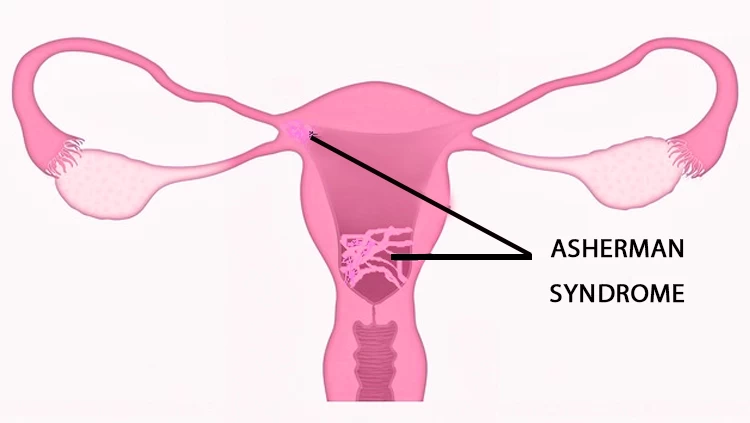


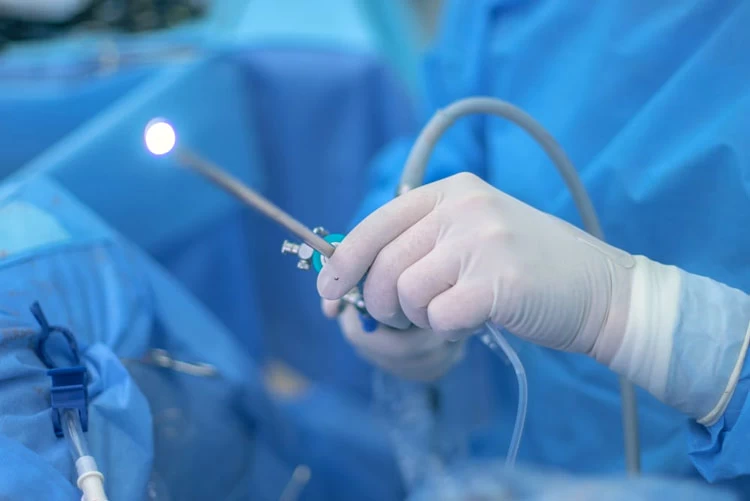
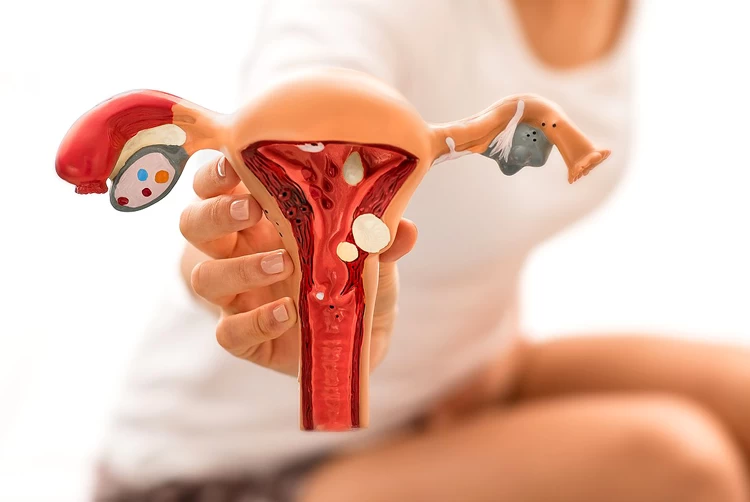

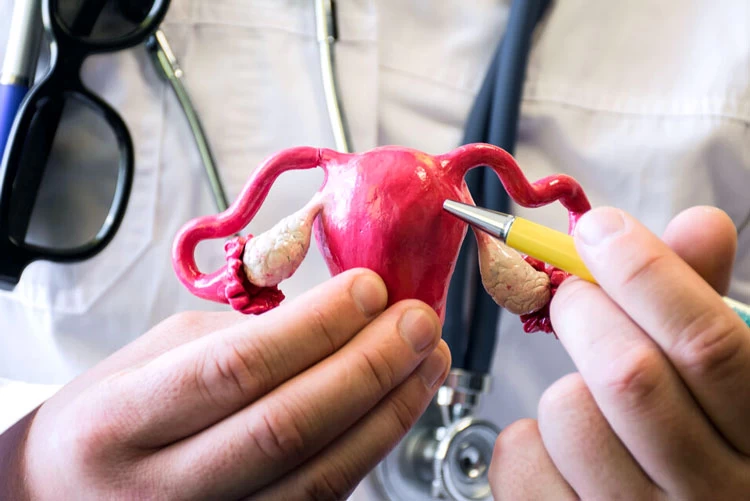



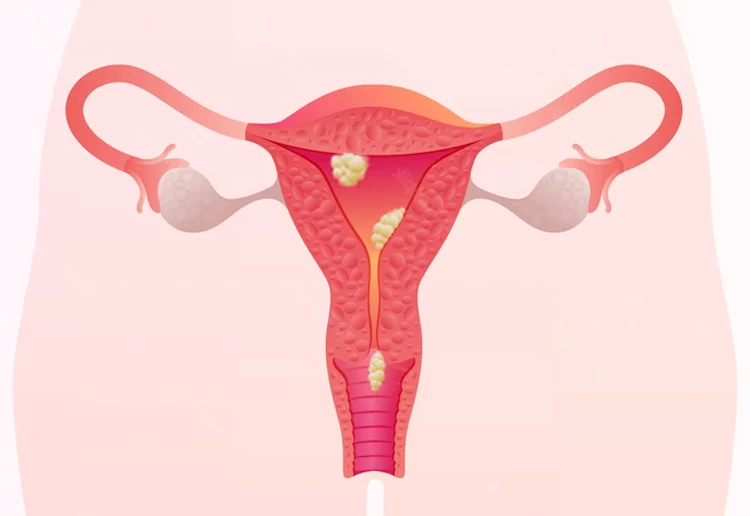


No reviews
Your comment